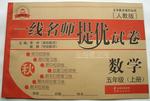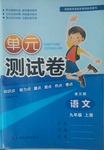题目内容
In the summer of 1978 an English farmer was driving his tractor through a field of wheat when he discovered that some of his wheat was lying flat on the ground. The fattened (压平的) wheat formed a circle about six meters across. Around this circle were four smaller circles of flattened wheat. The five circles were in a formation like five dots. During the following years, farmers in England found the strange circles in their fields more and more often.
The circles are called “crop circles” because they appear in the fields of grain - usually wheat or corn. The grain in the circles lies flat on the ground but never broken; it continues to grow, and farmers can later harvest it. Farmers always discover the crop circles in the morning, so the circles probably form at night. They appear only in the months from May to September.
At first, people thought that the circles were a hoax. Probably young people were making them as a joke, or farmers were making them to attract tourists. To prove that the circles were a hoax, people tried to make circles exactly like the ones that farmer had found. They couldn’t do it. They couldn’t enter a field of grain without leaving tracks(痕迹), and they couldn’t flatten the grain without breaking it.
Many people believe that beings from outer space are making the circle to communicate with us from far away and that the crop circles are messages from them.
Scientists who have studied the crop circles suggested several possibilities. Some scientists say that a downward rush of wind leads to the formation of the circles - the same downward rush of air that sometimes causes an airplane to crash. Other scientists say that forces within the earth cause the circles to appear. There is one problem with all these scientific explanations: crop circles often appear in formations, like the five-dot formation. It is hard to believe that any natural force could form those.
【小题1】In the summer of 1978, an English farmer discovered in his field that __________.
| A.some of his wheat had been damaged |
| B.his grain was growing up in circles. |
| C.his grain was moved into several circles |
| D.some of his wheat had fallen onto the ground. |
| A.an attempt made to fool people |
| B.a special way to plant crops |
| C.a research on the force of winds |
| D.an experiment for the protection of crops. |
| A.The farmer couldn’t step out of the field. |
| B.The farmers couldn’t make the circles round. |
| C.The farmers couldn’t leave without footprints. |
| D.The farmers couldn’t keep the wheat straight up. |
| A.An Unsolved Mystery |
| B.Strange Flying Objects |
| C.The Power of Natural Forces |
| D.The discovery of Strange Circles |
【小题1】D
【小题2】A
【小题3】C
【小题4】A
解析

 一线名师提优试卷系列答案
一线名师提优试卷系列答案 阳光试卷单元测试卷系列答案
阳光试卷单元测试卷系列答案Chinese politeness have always been formal to follow strict rules, although sometimes Chinese people seem to be impolite according to Western standards in public places. To well understand Chinese, some concepts should not be ignored.
Mianzi
The idea of shame, usually expressed as 'face' could be loosely defined as the 'status' or 'self-respect' in Chinese and by no means alien to foreigners. It is the worst thing for a Chinese to lose face. Never insult, embarrass, shame, yell at or otherwise demean a person. Since all these actions would risk putting a Chinese in a situation that he might lose face, neither try to prove someone wrong nor shout at him in public. In order to get a successful effect without letting a Chinese lose face, any criticism should be delivered privately, carefully, or else, just opposite to what you wish.
Guanxi
Throughout much of Chinese history, the fundamental glue that has held society together is the concept of guanxi, relationships between people. It is very important for the Chinese to have good relationships. They often regard good social relations as a symbol of personal ability and influence. Someone who has no connections would be disrespected and is only half-Chinese.
Keqi
Keqi not only means considerate, polite, and well mannered, but also represents respect and modesty. It is impolite to talk too proudly about oneself or one's inner circle. The expression is most often used in the negative, as in buyao keqi, meaning "you shouldn't be so kind and polite to me," or "you're welcome."
Besides, Chinese seldom express what they think directly and they prefer a roundabout way. Neither show their emotions and feelings in public. They rarely greet people with a handshake, though it is very popular among foreigners, and say nothing of embracing or kissing when greeting or saying good-bye. Consequently, it is better not to behave too carefree in public, even though you are well-intentioned. Also, it is advisable to be fairly cautious in political discussions. Do not particularly push yourself forward, or else you are unwelcome.
To sum up, do in Rome as Rome does, but you need not worry about these cultural barriers since most Chinese are hospitable and friendly and will not mind your no accomplishment.
【小题1】In most Chinese’s eyes, the fundamental glue holding society together is the idea of ____.
| A.relationships between people | B.influences upon others |
| C.dependence on others | D.kindness to others |


| A.respectful | B.happy | C.shameful | D.weak |


| A.It is impolite to insult, embarrass, shame or shout at a person. |
| B.It is polite that you should bring gifts to others when invited to dinner. |
| C.It is necessary to show your character of being considerate, polite, and well mannered. |
| D.It is important for the Chinese to have good relationships between people. |
| A.Caution is the parent of safety. | B.Many hands make light work. |
| C.There’s no smoke without fire. | D.If you are elsewhere, live as they do there. |